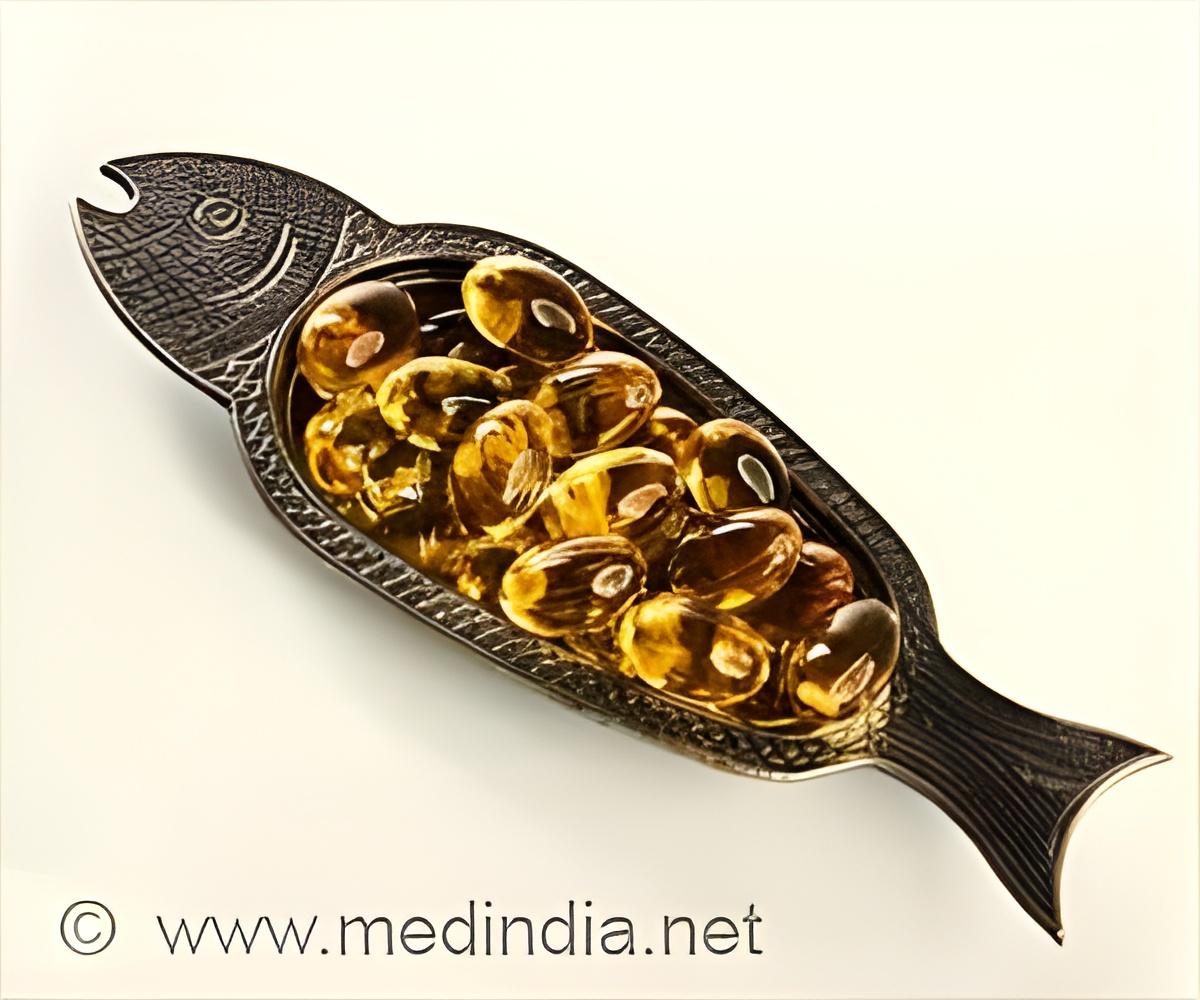Higher levels of the omega-3 fatty acid eicosapentaenoic acid (EPA) found in the blood and not a decrease in triglyceride levels reduce cardiovascular disease risk.

‘High dose of icosapent ethyl cuts the combined rate of first and subsequent nonfatal heart attacks, strokes, cardiovascular deaths, procedures for coronary artery disease such as stenting, or hospitalizations for unstable angina.’





"On-treatment EPA levels achieved via the drug strongly correlated with lower rates of cardiovascular events, heart attack, stroke, coronary revascularization procedures, unstable angina, sudden cardiac arrest, new heart failure, or death for any reason."REDUCE-IT enrolled 8,179 patients at 473 sites in 11 countries who had elevated cardiovascular risk and were already being treated with statins. The trial found that taking a high dose of icosapent ethyl cuts hospitalization risk for unstable angina by 25% and 30%, respectively, over a median of 4.9 years of follow-up. Most patients in the trial were already on antiplatelet therapy, ACE-inhibitors/ARBs, beta-blockers, aspirin and statins, which, researchers said, provided reassurance that icosapent ethyl, by itself, offered separate and incremental benefit.
Prior to REDUCE-IT, icosapent ethyl was approved by the U.S. Food and Drug Administration (FDA) for people with triglycerides above 500 mg/dL, so Bhatt said many people understandably thought the study drug reduced cardiovascular events primarily by lowering triglycerides.
However, Bhatt said the current study, which looked at the association between blood serum levels of EPA achieved on icosapent ethyl and cardiovascular outcomes, found the lion’s share of the drug’s remarkably large cardiovascular benefit is driven by achieved EPA levels.
"Changes in triglycerides levels and other cardiovascular risk markers, including LDL, HDL, apoB, and CRP, appear to be responsible for a significantly lesser portion of the overall observed benefit," he said. "I think this finding is going to usher in a whole new era of cardiovascular therapies. We are, in a sense, where we were with statins when the first one came out."
Advertisement
The researchers then examined achieved EPA levels on the drug compared with placebo, grouping patients into thirds, or tertiles, ranging from the lowest to highest levels of EPA and averaged across visits.
Advertisement
They examined on-treatment EPA levels from lowest to highest and found significant associations with all measured cardiovascular outcomes. "The higher the EPA level in their blood, the lower the rates of the different cardiovascular events, cardiovascular deaths, and even total mortality," Bhatt said.
Overall, the drug significantly increased serum EPA levels by 386% from baseline to one-year compared with the placebo. Levels of docosahexaenoic acid (DHA), which is another omega-3 fatty acid also found in oily fish like salmon, decreased by 2.9%, which Bhatt said suggests the cardiovascular benefits are clearly from EPA and not DHA.
Researchers also examined the relationship between on-treatment EPA levels and several other cardiovascular outcomes, though analyses for bleeding and atrial fibrillation were not yet available. While there were no significant reductions in heart failure in REDUCE-IT, among patients with the highest on-treatment EPA levels, there was a significant reduction in hospitalizations for new heart failure with the drug versus placebo, which Bhatt said is quite remarkable. There were also significant associations between on-treatment EPA levels and lower risks of sudden cardiac death and cardiac arrest, further validating what was seen in the overall trial.
Experts don’t know why some people are able to achieve higher serum EPA levels, and others are not. Bhatt and his team accounted for whether patients took the drug, but there may be other influencing factors, such as how someone metabolizes EPA, their body size or their genetics--this needs further study.
Bhatt said the EPA levels attained on the drug are well beyond what can be achieved with diet or dietary supplements. He said that the study drug is a unique prescription medicine and that the results do not apply to other omega-3 products or to dietary supplement formulations, which are not approved or strictly regulated by the FDA and which, per the FDA, have not demonstrated reliable or consistent cardiovascular risk reduction.
Based on the data from REDUCE-IT, the FDA in December 2019 expanded the icosapent ethyl label to be used as an add-on to maximally tolerated statin therapy to help reduce the risk of heart attack, stroke, coronary revascularization and unstable angina requiring hospitalization in adult patients with triglyceride levels 150 mg/dL and either established cardiovascular disease or diabetes mellitus plus two or more additional risk factors for cardiovascular disease. Based on this, Bhatt said icosapent ethyl stands to benefit over 12 million patients in the U.S. alone.
Source-Eurekalert















